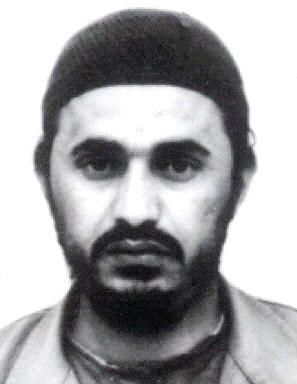
Dynamics

|
Generational Dynamics |
| Forecasting America's Destiny ... and the World's | |
| HOME WEB LOG COUNTRY WIKI COMMENT FORUM DOWNLOADS ABOUT | |
Today's coordinated terrorist attacks in Iraq and Pakistan, targeting Shi'ite Muslim worshippers on Ashoura, the holiest day on the Shi'ite calendar, may be the work of Musab al-Zarqawi. Al-Zarqawi is the Jordanian terrorist who recently called for more terrorist bombings in Iraq to spark a Sunni-Shi'ite civil war in Iraq, so that America will become embroiled in a war involving Muslims.
In Iraq, multiple suicide bombers targeted several of the most beloved Shi'ite shrines in Karbala and Baghdad, killing 150 people and wounding hundreds more. In Quetta, in southwestern Pakistan, armed men opened fire on Shi'ite worshippers during a procession, killing 29 people and wounding 150 more.
 |
The attacks appear to be following the prescription advocated by Musab al-Zarqawi, a Jordanian terrorist who has previously been accused of masterminding a string of spectacular suicide bombings in Iraq.
Early in February, a letter written by al-Zarqawi was intercepted by intelligence services. The letter contains both good and bad news. The good news is that the letter says that "the future has become frightening," as a result of the successes of coalition forces in turning Iraq into a democracy.
To prevent the success of this dreaded outcome, al-Zarqawi lays out a blueprint for an increased pace of terror attacks against Shi'ites in Iraq, in order to thwart the plan for democracy and plunge Iraq into civil war between rival Sunni and Shi'ite Muslim sanctions.
At this writing, some 12 hours after the bombings, no Iraqi religious leaders are calling for a civil war. Instead, the outside agitators are being condemned.
A Sunni spokesman said, "Our confidence in our people is great that they will not be lured into strife ... There is no doubt that these events were orchestrated specifically to incite sectarian wars in Iraq." Moderate Shi'ite officials expressed similar views, according to press reports.
However, more radical Shi'ites expressed outrage at American forces for not providing greater security. A loudspeaker outside Baghdad's Kazimiya shrine blared, "This is the work of Jews and American occupation forces." Inside the shrine, cleric Hassan Toaima told an angry crowd, "We demand to know who did this so that we can avenge our martyrs."
However, the Shi'ite anger expressed against Americans is not expected to result in any significant new violence.
Generational Dynamics analysis: The Iraqi people are only one generation past the violent 1980s Iran-Iraq crisis war, and are completely unenthusiastic for a civil war, and so al-Zarqawi's plan to spark one is almost certain to fail. However, Jordan, Palestine and Pakistan are all at or near new generational crisis periods, with their last crisis wars in the 1940s, following the partitioning of Palestine and Kashmir at that time. Although the Iraqi people themselves have no desire for war, today's terrorist attacks indicate that Iraq may become a battlefield for future wars that occur in Palestine and Kashmir.